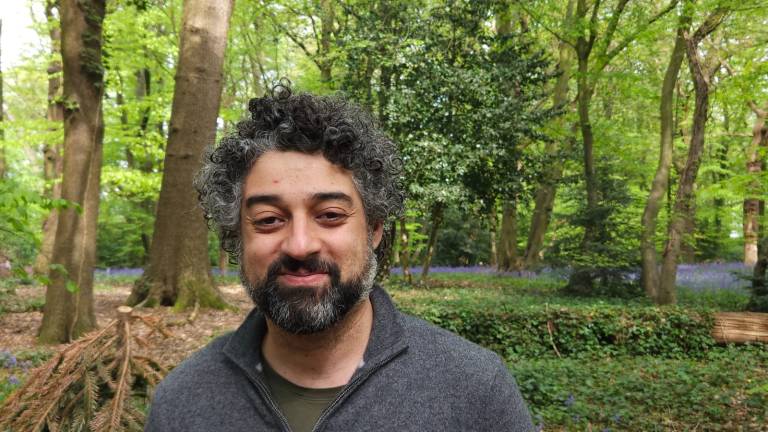Dr Vitor Zimmerer is a clinical linguist and cognitive scientist, with a focus on language capacity in neurodiversity and people with neurological disorders such as dementia.

What attracted you to research language capacity in people with neurological disorders?
I admit my motivation was very narrow at first. My first degree is in Linguistics, and I wanted to learn how language works by investigating how it can break down.
My perspective quickly changed when I started to meet people with aphasia and dementia. I began to see the bigger picture and realised the potential of my work in making a positive impact on the lives of those affected by neurological disorders.
How can looking at language help us better understand conditions like dementia?
When we use language, we use large, intricate networks in our brains that are interconnected with other cognitive processes. This makes language very sensitive to changes in the brain and we can use that in diagnosis and tracking of change.
Word-finding problems are an early indicator for dementia because of Alzheimer’s disease, and in Parkinson’s disease, we can measure how movement words (e.g. “dance”) become harder to process even before motor symptoms are observed.
When we investigate language, we also learn directly about a domain that is crucial to our quality of life. By working with speech and language therapists, we can develop strategies to overcome language-related challenges and improve wellbeing.
What are some of the challenges in using language capacity to diagnosis neurological disorders?
Individual variation. Even in speakers without neurological differences, there are many differences between individuals. When you add the varying effects of brain atrophy, data quickly become very complex.
In order to better identify and track dementia based on language, we need to learn about how language changes in healthy ageing just as much as we need to work on language from people with dementia.
You were co-investigator on a project on formulaic language in dementia, funded by the Alzheimer's Society, and a member of a consortium to accelerate research into speech and language biomarkers for Alzheimer’s disease, funded by the Alzheimer’s Drug Discovery Foundation (ADDF). Can you tell us more about these projects?
Behind formulaic language is the idea that, just as any familiar behaviour is less challenging for a person with dementia, the same applies to language forms.
Familiar words and familiar sentences are easier to understand and produce. We can use this knowledge to detect and understand language change. With the help of the Alzheimer’s Society we have shown how people with Alzheimer’s disease start favouring familiar expressions over rare or new utterances. This is a subtle, but measurable change.
A reduction to language formulas comes with limitations in life, since affected individuals find it harder to talk about new ideas or needs.
The language consortium organized by the ADDF is a big data project aiming to collect language samples from a very large group of people with dementia, as well as healthy speakers. Data collection is underway, and the database will be made available to researchers.
You are the module lead for the Language and Communication in Dementia module (Psychology and Language Sciences BSc/MSci). Can you tell us more about this?
I enjoy this module a lot; it is my baby. The module is designed to introduce undergraduate students to the complex world of dementia, with a particular emphasis on language and communication.
In the first weeks, we delve into different types of neurodegeneration, including Alzheimer’s disease, Parkinson’s disease, Huntington’s disease and frontotemporal dementias. Students learn to analyse samples of spoken language and associate language symptoms with different types of dementia. It is a great way to show how language sciences can be applied in practical settings.
We then talk about interventions (including speech and language therapy), dementia care, and how to create environments which are dementia friendly. In one exercise, we assess a public space for its dementia friendliness. This activity is a real eye-opener for students, as they walk through a familiar environment with the unique challenges and needs of people with dementia in mind.
What working achievement are you most proud of?
I am very happy to be in a position where I can introduce contemporary approaches in language sciences to clinical research, and where I can raise awareness of dementia.
Why would you recommend UCL as a place to study language and cognition?
I could point at UCL’s impressive rankings, but more important for me is that at UCL, you quickly notice that it is a world-leading institution where a lot of exciting research takes place. This translates very well into lectures, seminars and student research projects.
 Close
Close

